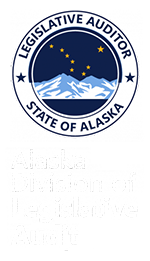| SUMMARY OF: | A Performance Review of the Department of Revenue, Alaska Mental Health Trust Authority, Status of Select Asset Management Issues |
Why DLA Performed This Audit
The audit was requested to evaluate the corrective action taken by the Authority to address the prior audit findings related to select asset management issues.
Report Conclusions
A legislative audit released June 2018 found the Alaska Mental Health Trust Authority’s (Authority) board of trustees violated State statutes and terms of the State v. Weiss settlement by diverting $39.5 million of the Alaska Mental Health Trust (Trust) cash principal from the Alaska Permanent Fund Corporation (APFC) to purchase seven commercial real estate properties and $1.8 million of cash principal to purchase/construct several program-related properties. During November 2019, Authority management reported that corrective action had been taken to address the prior audit findings. This audit evaluates the corrective action taken by the Authority. Specifically, the audit determines whether Trust cash principal diverted from the APFC was restored and whether policies and regulations used by the Authority to justify prior actions were amended to comply with statutes. This audit also evaluates the status of the commercial real estate investments and the Authority’s intent regarding future management of the investments.
The audit concluded that the Authority’s board of trustees restored Trust cash principal with $41.3 million of Trust income reserves and continued to use the Trust Land Office (TLO) to manage the commercial real estate properties. The audit also found that Authority policies were partially amended to prohibit future investment of cash principal in commercial real estate outside of the APFC.
Beginning in 2014, Trust income reserves significantly exceeded target levels because excess income was not used to fully inflation-proof the Alaska mental health trust fund. The board of trustees authorized inflation-proofing of up to $120.3 million during its March 2021 meeting.
The Authority’s decision to invest $39.5 million of Trust income in the TLO managed commercial real estate properties decreased the liquidity of Trust income reserves and impaired the Authority’s ability to inflation-proof. If excess Trust income was used to inflation-proof the Trust, the TLO commercial real estate investments would make up 59.5 percent of the remaining income reserves. The illiquid nature of such a large percentage of reserves calls into question the Trust’s ability to meet its spending goals in a down market.
Although AS 37.14.041(b) requires Trust income in excess of the amount needed for the State’s comprehensive mental health program be transferred to the State’s general fund, the audit found the Authority did not have a written policy for identifying the amount available for transfer. When evaluating income reserves, auditors noted deficiencies in the Authority’s methodology for calculating reserves and the annual withdrawal amount.
After the 2018 audit was released, the Authority’s board of trustees transferred $16.9 million of cash principal to the APFC from the trust authority development account. Subsequently, no principal was transferred for 15 months. More routine transfers began April 2020. Further, the audit found that cash principal was inappropriately used by the Authority for land development activities approved prior to FY 20. Policies were changed beginning in FY 20 to require land development activities be funded with Trust income.
According to Authority management, the value of the TLO managed commercial real estate investments increased by $9.6 million since the prior 2018 audit and provided a net equity value of $60.4 million; however, auditors note that the properties were not subject to an annual independent appraisal and two properties were projected to have negative cash flow for FY 21. At the time of the audit, the Authority intended to continue managing the commercial real estate properties as an investment of Trust income through the TLO.
Findings and Recommendations
- The Authority’s board of trustees should consider liquidating the TLO managed commercial real estate investments or transferring the investments to the APFC as inflation-proofing.
- The board of trustees should develop written procedures to ensure that annual withdrawals are correctly calculated.
- The board of trustees should develop written policies to ensure Trust income reserves are correctly determined.
- The board of trustees should consider developing written policies that require inflation-proofing occur annually if Trust income reserves are sufficient.
- The board of trustees should develop written policies to annually evaluate whether Trust income must be transferred to the general fund.

